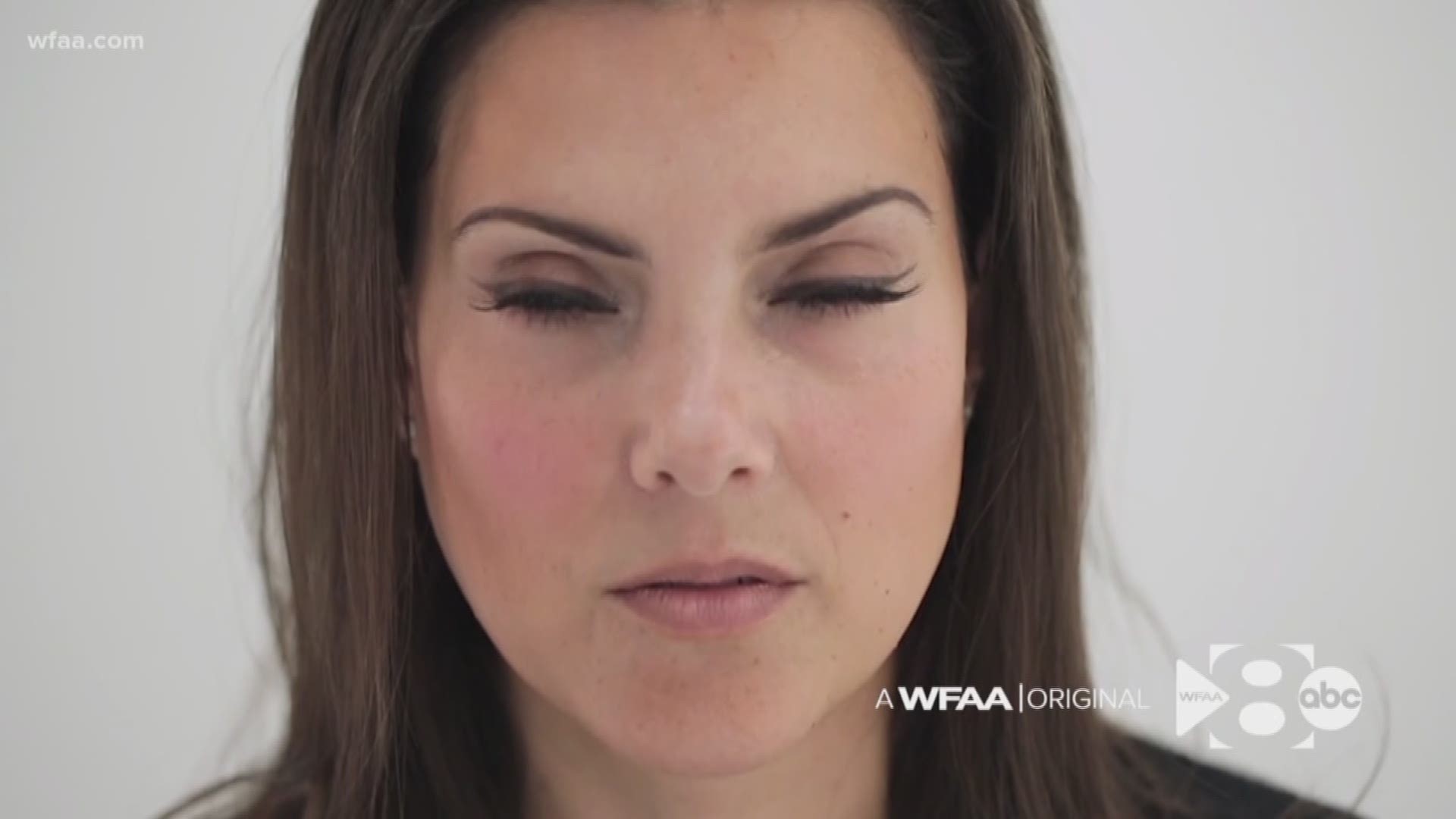At age 40, Selwa Mitchell's body moves in ways that most of us will never feel.
"I started practicing about 4 years ago," said Selwa, a Plano-based yoga instructor.
"I do meditation through movement," Selwa said. "And your brain doesn't think about anything for a few minutes."
For Selwa, this is freedom from cystic fibrosis, a genetically inherited disease that primarily affects the lungs and digestive system. "I was diagnosed at the age of 3," Selwa explained. "It takes over your lungs. But not only that, your whole body."
Doctors expected the genetic disease to deteriorate Selwa's body fast. She was told she wouldn't live past age 7. "Here I am... 40!" Those are years that Selwa's body has fought for.
In high school, that means 4-hour treatments every day using a nebulizer inhaler. She would wear a vest that would shake up her lungs and open her airways.
In college, it meant discipline to take care of her health. Even when she met the love of her life and married him, it meant fighting a lifetime of brushes with death. "It was day-by-day, hour-by-hour, second-by-second," said her husband Scott. "You couldn't get too far ahead of yourself. You had to really be in the moment."
Every moment became extraordinary, like when Isabella was born. And four years later, the arrival of her baby brother 'Mitch'. There is a limit to even the strongest person's strength. "I let them know that their mom was very, very sick," he said. The lungs Selwa was born with were dying.
"Here I am at 22 percent lung function. I can barely breathe, but I could get on my mat, and I could find my handstand, my headstand," Selwa recalled. "Knowing that my body could still do that, I knew that I still had a chance."
Selwa's only hope was a double lung transplant: a gift she would receive from an 18-year-old donor in June 2016. In a few short months -- heartbreak. Selwa's body was rejecting the donor lungs.
"One day I went into the hospital, and I was at 96 percent and all of the sudden I blew a 70," Selwa said. She was breathless and at times, hopeless.
"I was completely removed from my life to the point where I would be laying on my death bed thinking of all the last times," Selwa admitted. "Like, that was my last time to take her to school. That was my last time to help them brush their teeth. So, I was just, in my mind, living through all my last times."
Her body was shutting down, but her spirit was on a different path. "I'm fighting to breathe, to talk, to live and I had to get back onto the transplant list," Selwa said determined.
That's not easy. A lot of doctors wouldn't perform a risky second double lung transplant. Selwa was just too sick. "My kidneys shut down, I had a heart attack, I had a stroke, liver failure, lung failure," Selwa's voice trailed off.
Her husband Scott had an idea. "I wanted to connect the doctors with a person and a family and a strong woman, not just a patient lying in a hospital bed," Scott said.
He wallpapered Selwa's hospital room with photos. "As soon as I did that, the next time a doctor or a nurse walked in, it was the first thing their eye went to. They saw the strength in her and how strong her body is and her light that just shines through her," Scott said. "And I think it kind of rallied the troops."
In the days ahead, Selwa's heart grew stronger. She got back on the transplant list.
Less than one full year later, Selwa's third pair of lungs are allowing her to live life in a way that's simple and familiar to us, but something she's never experienced. "[It's] nice to take that deep breath when I start thinking about it," Selwa said, pausing appropriately to deeply inhale.
No more wheelchairs or oxygen tanks. Selwa can now walk her dogs, drive her kids to school, and while she still has to take 50 pills every day, Selwa can practice yoga now with her full breath.
"I've had two lung transplants and I still have to be reminded to be thankful for my breath," Selwa said as a gentle reminder to herself and others to celebrate the gift of each moment. "Just take a deep breath and say thank you."
In the last 30 years, evolution in medical research is allowing people with cystic fibrosis to live longer. The life expectancy now hovers near 50.

